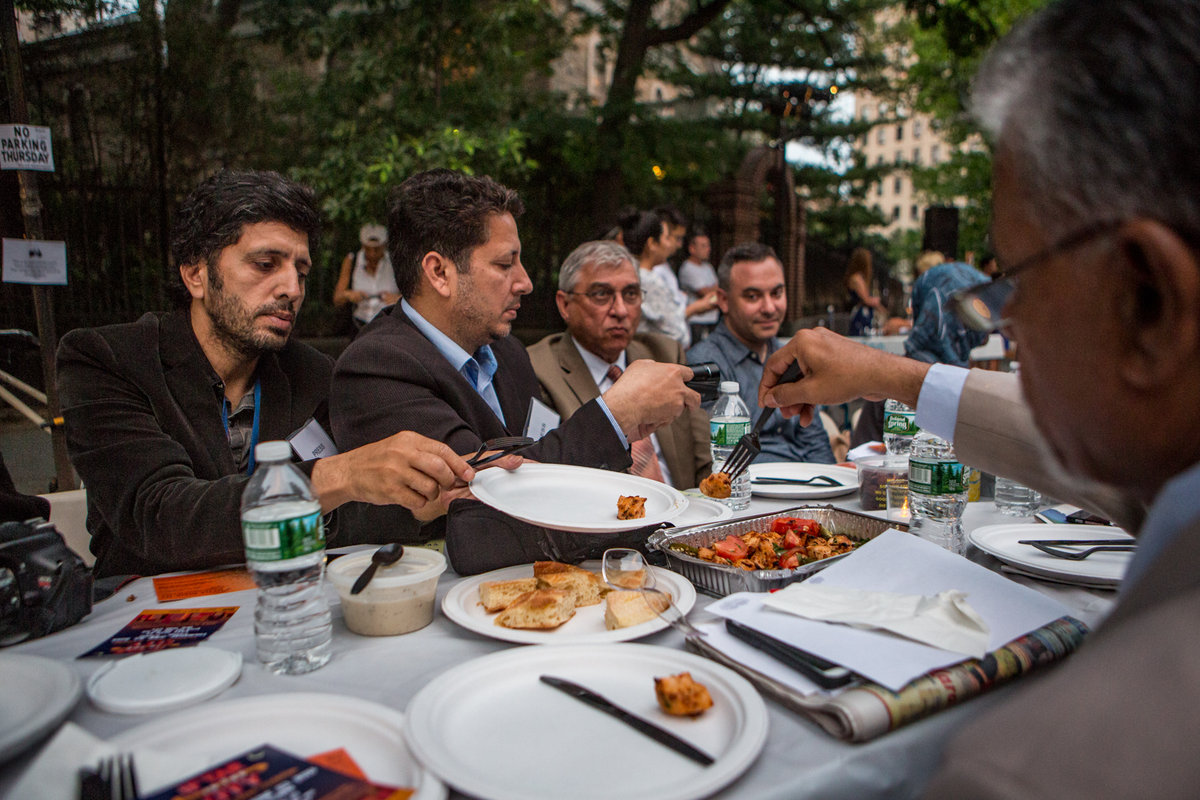A Saudi Arabian judge declared this weekend that husbands can slap their wives if they spend too much money. Asra Nomani tells us why she is “thrilled” by his outrageous remarks (and his getting busted for them) and why they are a helpful wakeup call for the Muslim world.
The blogs are lighting up with ridicule after a Saudi judge declared this past weekend that husbands can slap their wives on the face if they blow their husband’s money. One headline declared: “Saudi judge says it’s OK to bitch slap your wife.” Said a blogger: “Just more of those Muslim family values in action, folks!” Another headline laid out the news: “Saudi Sharia Judge: Slap the Bitch…”
For my part, I’m thrilled the judge said what he did – and got busted for it.
But first, let’s start with the facts. The incident occurred at, of all places, a conference on domestic violence, sanctioned by the Saudi royal family. During the conference, Sheik Hamad bin Mohammed Al-Razine, a judge in the Saudi city of Jeddah, tried to explain an increase in spousal abuse by suggesting spendthrift women were partly to blame, a Saudi newspaper reports.
“If a person gives SR1,200 [$320] to his wife and she spends SR900 [$240] to purchase an abaya [a full black gown worn mostly with a face veil or head covering] from a brand shop and if her husband slaps her on the face as a reaction to her action, she deserves that punishment,” he said, according to an Arab News account. Women in the audience jeered loudly—but because Saudi judges are also Islamic clerics, their comments are influential.
CNN picked up the comment, and the incident has become yet another battle in the struggle for reform in the Muslim world of the modern day. Razine’s statement is emblematic of a disturbing interpretation of Islam exported from Saudi Arabia to the far corners of the world, and we’re better served as a global society every time the absurdity of this ideology is exposed.
To me, the issue of religiously mandated violence against women is part of a continuum of literalist interpretation of the Quran that includes banning women from driving, segregating women, allowing forced marriages of underage girls, and, ultimately, sanctioning intolerance and targeted violence against civilians of the kind perpetuated by al Qaeda. The way I see it, the Muslim world will be stuck in the Dark Ages as long as men with ideologies like this judge’s remain in positions of power, just as the West was crippled as long as preachers, judges, and politicians argued that the Bible sanctioned slavery, segregation, and sexism.
In this case, the debate over the right of Muslim men to “bitch slap” their wives underscores a literal read of verse 4:34 of the Quran, which states, according to a direct translation, that it’s OK to “beat (lightly)” a disobedient wife as an option of third resort after admonishing her and then turning away from her in bed. Trying to reconcile this literal read with the 21st century has led to something I call “the 4:34 dance,” where imams from Saudi Arabia to Texas have extolled the virtues of various degrees of abuse, from wet noodles to yardsticks.
In Woman in the Shade of Islam, a book widely available in mosques and on such Web sites as the online library of Young Muslims of Canada, Saudi sheik and author Abdur-Rahman A. Al-Sheeha advocates a special brand of domestic violence: “Beating without hurting, breaking a bone, leaving blue or black marks on the body and avoiding hitting the face, at any cost.” This book was handed to me at my mosque in Morgantown, W.Va., where we once got a visit from a Muslim preacher who was on record saying it was OK to hit a woman with a yardstick or “rolled up newspaper.”
The latest controversy over the Saudi judge’s remarks underscores the strange challenges facing Muslims in the 21st century on so many levels. The judge assumed that the buck—or Saudi riyal, in this case—stops with the husband, an ironic presumption considering that in the seventh century the prophet Muhammad’s first wife was his boss, Khadija, a successful caravan merchant who proposed to him. Second, the judge used the purchase of an extravagant abaya as justification for abuse when in the seventh century of Islam women of Muslim society weren’t even required to wear these suffocating coverings, which women in Saudi Arabia are expected to wear today.
And, of all things, the judge was speaking at a seminar organized by the National Family Safety Program, a seemingly well-intentioned initiative started in 2005 in an attempt to curb child abuse and domestic violence in Saudi Arabia. A princess, Seetah bint Abdul Aziz, is listed as the head of the program, and another princess, Adila bint Abdullah, is deputy chairwoman. The topic of this weekend’s seminar was “The Role of Judicial and Security Institutions in Fighting Family Violence.”
In the wake of such gruesome murders as the beheading earlier this year of a young mother, Aasiya Hassan, in Orchard Park, N.Y., allegedly by her husband, Muzzamil Hassan, the co-founder of an American Muslim TV enterprise, American Muslims have tried to challenge interpretations like the one put forth by the Saudi judge. But the judge’s statement reveals that we need a serious reprogramming initiative that rejects prevailing backward notions, like the idea that “bitch slaps” are OK, and sets forth a very simple interpretation of Islam toward domestic violence: zero tolerance.
(Photo: Jennifer Hayes)
Asra Q. Nomani is the author of Standing Alone: An American Woman’s Struggle for the Soul of Islam. She can be reached at asra@asranomani.com. This article was originally published in The Daily Beast.




